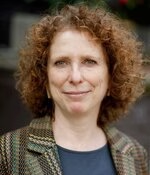Introduction
Key terms: resilience, stress, work-life balance, finding strength and direction, introductory course, relevant for students in any PhD phase.
Writing a PhD is a demanding, complex and sometimes lonely activity. It requires not only intellectual, but also mental and emotional strength and flexibility. In other words: you need resilience.
People’s resilience differs: some people seem to be able to handle just about everything, while others are less stable. The good news is that you can learn to be more resilient. This course teaches you the skills to do just that.
Through lectures, exercises, reflection and practical tools, the course teaches practical skills and offers an in-depth explanation of the emotional and mental challenges of a PhD and how to deal with them.
You will learn how to work with a wide range of stressful situations and you will deepen your (psychological) insights and understandings of yourself within the context of academia.
ECTS: 2
Number of sessions: 3
Hours per session: 3
Entry level and relevance
Prior knowledge or experience is not required. The course is useful for PhD students in all stages of their project and in all research disciplines.
Relations with other courses
There is some overlap between this course and the EGSH course How to manage your PhD project. Both courses deal with practical skills pertaining to time management and communication.
Key Facts & Figures
- Type
- Course
- Instruction language
- English
- Mode of instruction
- Offline
Start dates for: Bounce back: handling the mental and emotional challenges of doing a PhD
Edition 1
Session 1: May 13 (Wednesday) 2026 | 14.00-17.00 hrs | Offline (Mandeville building, room T19-01)
Session 2: May 20 (Wednesday) 2026 | 14.00-17.00 hrs | Offline (Mandeville building, room T19-01)
Session 3: May 27 (Wednesday) 2026 | 14.00-17.00 hrs | Offline (Mandeville building, room T19-01)
What will you achieve?
- After the course you will know what resilience is.
- After the course you will understand what unhealthy pressure, stress and anxiety do with mind and body, and how they can minimise the effects.
- After the course you will learn how to handle feelings such as anger, sadness, shame or fear.
- After the course you will know and use your strengths and resources.
Sessions and preparations
Session 1: Your struggles and the five pillars of resilience
In the first session, we will collect issues that participants are struggling with. These will form the material we will work with during the course. We will then look into the definition of resilience and the 5 pillars that constitute it. Pillar 1 (clarity) and 2 (self-care) will be discussed.
A peer supervision is part of each session. You will end the sessions with practical interventions you will experiment with in your daily PhD life.
Session 2: Self-compassion, difficult emotions, and self-knowledge
We will look back onto what you did in the past week and address pillars 3 (self-compassion and dealing with difficult emotions) and 4 (self-knowledge). You will leave with some personal interventions that you will try out or continue to do.
Session 3: Finding strength and direction, and your personal recipe book
We will look into the 5th pillar, which is finding strength and direction. You will discover how you can move forward and what can help you to do so. After a peer supervision we will end the session with writing your personal recipe book, so that you know exactly what you can do when things get difficult during your PhD.
About the instructor
 Drs. Alexandra Gerny is an experienced coach with a background in psychology and systems psychodynamics. She works with professionals in science, culture and law, helping them to fulfil their professional roles in a powerful balance. She wrote half a PhD, until she realised that her coaching and training skills are better (and more satisfying) than her academic skills. She works independently in Amsterdam. She is president of the International society for the psychoanalytic study of organisations.
Drs. Alexandra Gerny is an experienced coach with a background in psychology and systems psychodynamics. She works with professionals in science, culture and law, helping them to fulfil their professional roles in a powerful balance. She wrote half a PhD, until she realised that her coaching and training skills are better (and more satisfying) than her academic skills. She works independently in Amsterdam. She is president of the International society for the psychoanalytic study of organisations.
Contact
- Enrolment-related questions: enrolment@egsh.eur.nl
- Course-related questions: info@gerny.nl
Telephone: +31 (0)10 4082607 (Graduate School)
Facts & Figures
- Fee
- free for PhD candidates of the Graduate School
- € 450,- for non-members
- consult our enrolment policy for more information
- Tax
- Not applicable
- Offered by
- Erasmus Graduate School of Social Sciences and the Humanities
- Course type
- Course
- Instruction language
- English
- Mode of instruction
- Offline
